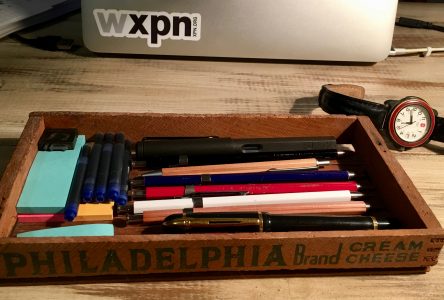Jenny Odell’s Aim in Writing Her Book – Assignment 2
The aim of Jenny Odell’s book, How to Do Nothing: Resisting the Attention Economy, is to get her readers to re-examine his or her life by questioning how their lives are lived in a world that stresses capitalist productivity. Odell accurately states that the world in which we currently live has become increasingly more technologically advanced; consequently, there have become fewer moments in our lives for doing nothing.
We have, to a great extent, abandoned the simple life that previous generations lived. Odell states that observation and enjoyment of natural public art should be considered as one way for us all to de-stress from our daily lives. Our attention should be drawn more to pleasurable activities, such as beautiful music, displays of natural public art, such as breathtaking views of public parks, snow-topped mountain vistas, tropical oases, and glorious sunsets.
Another example of doing nothing, according to Jenny Odell, is when she writes in her book about a project entitled, Applause Encouraged, by Scott Polach, which took place at Cabrillo National Monument in San Diego, California several years ago. The guests were invited to attend a formalized sunset event at the Monument to simultaneously watch the sun set. The guests applauded its beauty (Odell 6).
Also, Odell maintains that “art” already in existence, rather than man-made, should be viewed subjectively by every individual as a productive way of doing nothing. In addition, the author states that she finds existing artifacts “more interesting than anything I could possibly make” (Odell 5). Observation of things such as antique soda bottles, sea glass, and even tiny sea creatures, for example, should capture the attention of those of us who wish to slow down in this fast-paced world we call home.
Jenny Odell also gives the reader an example of one of her favorite places to unwind and live simply with great pleasure by doing nothing: sitting in the Rose Garden in Oakland, California, where she would enjoy nature in all its beauty! The Rose Garden beckons visitors with its breathtaking gardens and myriad labyrinths where one can spend hours doing nothing more than enjoying the scenery and take a much-needed break.
A further example of auditory attention that the author gives is mentioned in Deep Listening, by Pauline Oliveros, a musician and composer (Odell 7). Oliveros taught experimental music in San Diego in the 1970s where she scheduled groups in techniques designed to “bring some inner peace amid the violence and unrest of the Vietnam War” (Odell 7). Oliveros also proposed that deep listening to sounds in our everyday lives would help to promote inner peace. She noted that there is a difference between listening and hearing; hearing being the means we each physically perceive sound, but listening is the means in which we psychologically perceive the sound. This auditory method of practicing doing nothing is something the author Odell uses to escape from the pressures of everyday life. She professes that she has been involved in this practice for some time without realizing it. She proclaims to be an avid bird watcher, noting that “I’ve always found it funny that it’s called bird-watching, because half if not more of bird-watching is actually bird-listening” (Odell 7). She makes a point of the fact that observing birds doesn’t ask you to do anything.
Odell also mentions that her dad, who worked as a technician in the 1970s, became disillusioned with his job. He had enough savings that he could quit work and live on the cheap, which he did for two years. During that time, he read a lot, bicycled, fished, studied math and electronics, and taught himself the flute. As Odell states, regarding her dad’s new awareness of the need for space to do nothing, “But that time also taught my dad about creativity, and the state of openness, and maybe even the boredom or nothingness, that it requires” (Odell 10). He re-entered the work force “With renewed energy and a different perspective on his job, he went from technician to engineer, and has filed around twelve patents so far” (Odell 11.) Her dad came to realize that whatever happened at work was just a small part of a much bigger picture.
The author also notes in her book that public, non-commercial spaces “demands nothing from you in order for you to enter, nor for you to stay; the most obvious difference between public space and other spaces is that you don’t have to buy anything, or pretend to want to buy something, to be there” (Odell 13).
In general, we are overwhelmed and exhausted using our valuable time on this earth working on capitalist ventures and becoming obsessed with social media platforms such as Facebook, Twitter, and YouTube. We have become addicted to gaming systems, spending huge quantities of time on our smartphones, while neglecting face-to-face conversations with people and enjoying the beauty of God’s creation.
In summary, Jenny Odell seeks to give her readers her perspective on why we collectively and mindlessly value commercial productivity as being more important than doing nothing and suggests how we could learn from her example of creating space for ourselves and doing nothing. We all should re-examine how we live our lives and to improve them by spending less time in the rat race and more time enjoying our limited existence in this world. She is not asking us to change our lives but to rethink how we live them. Every one of us should seriously consider Jenny Odell’s compelling argument for spending more time doing nothing.


